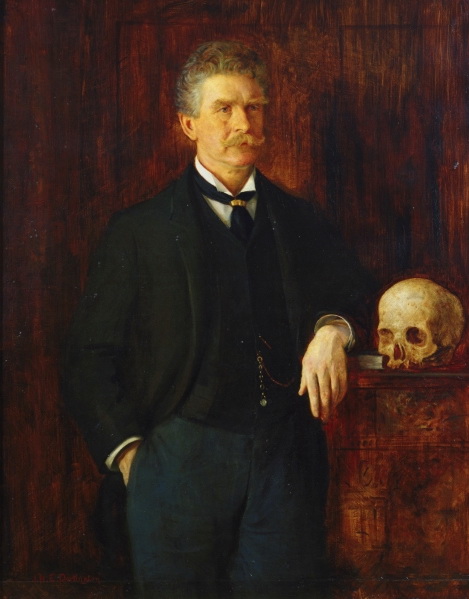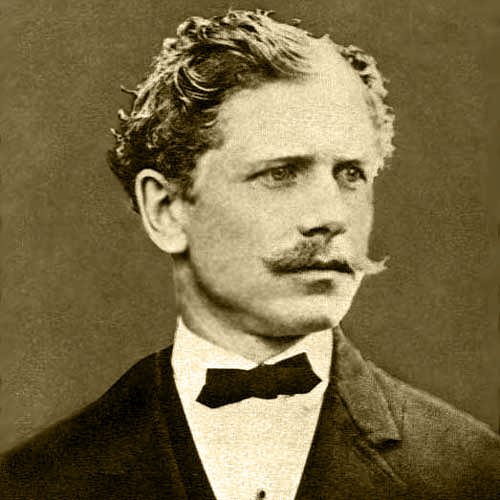My thoughts on the U.S. premiere (and second production of) Marilyn Forever by Gavin Bryars. I am disappointed that my description of an obscene phone caller “twanging his telephone wire” was edited out.
I had no idea that Duke Ellington had ever composed an opera until I saw Long Beach Opera’s 2014 season. Turns out it’s not truly what could be called an opera, but it’s definitely the closest Ellington ever came to writing one. You can read about in the latest issue of LA Weekly, or you can click here.
I thought my story would be an online article, so it had a high word count when I turned it in (you don’t need to worry about column space in cyberspace). A few things wound up cut, so I’m including them here if you don’t know much about Ellington’s music.
At the top of this post: a composition Duke Ellington wrote to showcase Cootie Williams’ unique trumpet playing. One of the biggest challenges facing modern bands playing Ellington’s arrangements is that so much of his band’s sound was inextricably linked to his soloists. When Ellington wrote an alto saxophone part, he wasn’t just writing for any old alto saxophone. He wrote specifically for Johnny Hodges. In an interview, I asked music director Jeffrey Lindberg about this issue, and he replied
“If players are able to get that Ellington soloist’s sound, they will; if not, they’ll do it their own way. It depends on the specific number. Cootie Williams’ trumpet sound has to be authentic, or else it doesn’t sound right.”
In “Concerto for Cootie,” an Ellington composition, Williams uses two different trumpet mutes, as well as playing open trumpet. You can also hear him “growling,” which was a classic sound that Ellington frequently required from his trumpet soloists. Growl technique went all the way back to Ellington’s Cotton Club band and the trumpeter therein who popularized that sound, Bubber Miley.
There are several numbers interpolated into Queenie Pie that weren’t in Ellington’s original score. One of these is “Creole Love Call,” which was mainly composed by Bubber Miley. Not only can you hear Bubber Miley himself, but immediately before his solo (and in the final chorus), Adelaide Hall imitates Miley with her voice. A vocalist imitating a trumpeter imitating a vocalist!

From Philip K. Dick’s novel, Valis:
‘Pity’s highest power’ is just bullshit. Pity has no power … Everyone knows this, everyone who has gazed down helplessly at a sick or dying human or a sick or dying animal, felt terrible pity, overpowering pity, and realized that this pity, however great it might be, is totally useless.
…
Parsifal is one of those corkscrew artifacts of culture in which you get the subjective sense that you’ve learned something from it, something valuable or even priceless; but on closer inspection you suddenly begin to scratch your head and say, ‘Wait a minute. This makes no sense’
I can see Richard Wagner standing at the gates of heaven. ‘You have to let me in,’ he says. ‘I wrote Parsifal. It has to do with the Grail, Christ, suffering, pity and healing. Right?’
And they answer, ‘Well, we read it and it makes no sense.’ SLAM. Wagner is right and so are they. It’s another Chinese finger-trap.

Today marks the 100th anniversary of the premiere of one of the essential musical compositions of the 20th century, Igor Stravinsky’s The Rite of Spring. Below, from Stravinsky’s autobiography (Chroniques de ma vie, 1936), is a description of that notorious evening (the date of which Stravinsky misremembered). Historians warn us that Stravinsky’s remembrance of his appraisal of Nijinsky’s choreography 25 years after the event, and nearly 2 decades after Nijinsky went insane, might be unreliable.
I have now come to the spring season of 1913 in Paris, when the Russian Ballet inaugurated the opening of the Théatre des Champs-Elysees. It began with a revival of L’Oiseau de Feu, and the Sacre du Printemps was given on May 28 at the evening performance. The complexity of my score had demanded a great number of rehearsals, which Monteux had conducted with his usual skill and attention. As for the actual performance, I am not in a position to judge, as I left the auditorium at the first bars of the prelude, which had at once evoked derisive laughter. I was disgusted. These demonstrations, at first isolated, soon became general, provoking counter-demonstrations and very quickly developing into a terrific uproar. During the whole performance I was at Nijinsky’s side in the wings. He was standing on a chair, screaming “sixteen, seventeen, eighteen”—they had their own method of counting to keep time. Naturally the poor dancers could hear nothing by reason of the row in the auditorium and the sound of their own dance steps. I had to hold Nijinsky by his clothes, for he was furious, and ready to dash on to the stage at any moment and create a scandal. Diaghileff kept ordering the electricians to turn the lights on or off, hoping in that way to put a stop to the noise. That is all I can remember about that first performance. Oddly enough, at the dress rehearsal, to which we had, as usual, invited a number of actors, painters, musicians, writers, and the most cultured representatives of society, everything had gone off peacefully, and I was very far from expecting such an outburst.
Now, after the lapse of more than twenty years, it is naturally difficult for me to recall in any detail the choreography of the Sacre without being influenced by the admiration with which it met in the set known as the avant-garde —ready, as always, to welcome as a new discovery anything that differs, be it ever so little, from the déjà vu. But what struck me then, and still strikes me most, about the choreography, was and is Nijinsky’s lack of consciousness of what he was doing in creating it. He showed therein his complete inability to accept and assimilate those revolutionary ideas which Diaghileff had made his creed, and obstinately and industriously strove to inculcate. What the choreography expressed was a very labored and barren effort rather than a plastic realization flowing simply and naturally from what the music demanded. How far it all was from what I had desired!
In composing the Sacre I had imagined the spectacular part of the performance as a series of rhythmic mass movements of the greatest simplicity which would have an instantaneous effect on the audience, with no superfluous details or complications such as would suggest effort. The only solo was to be the sacrificial dance at the end of the piece. The music of that dance, clear and well defined, demanded a corresponding choreography — simple and easy to understand. But there again, although he had grasped the dramatic significance of the dance, Nijinsky was incapable of giving intelligible form to its essence, and complicated it either by clumsiness or lack of understanding. For it is undeniably clumsy to slow down the tempo of the music in order to compose complicated steps which cannot be danced in the tempo prescribed. Many choreographers have that fault, but I have never known any who erred in that respect to the same degree as Nijinsky.








